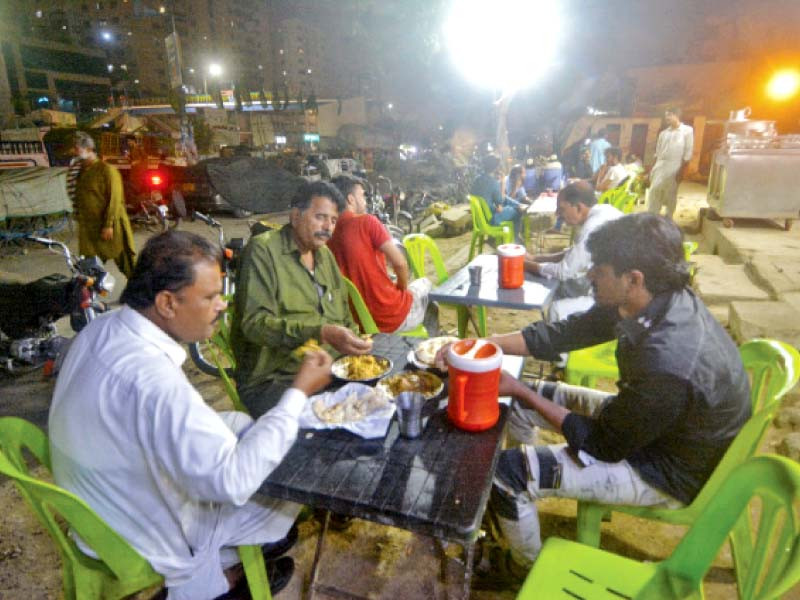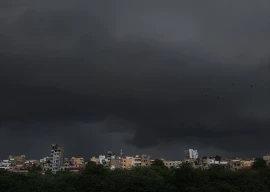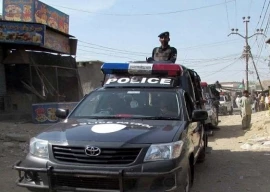
Adapting to the ‘new normal’ during the pandemic had meant leaving behind many traditions that had once been part and parcel of the Karachiite lifestyle. This also included bidding adieu to the dine-out culture that would otherwise boon during the month of Ramzan, when eateries would remain open from dawn to dusk to cater to throngs of people from all walks of life.
However, now that the Islamic Republic has seemingly washed its hands clear of the threat of Covid-19, all that was lost to the pandemic has returned, jumpstarting the port city’s electric nightlife. This also means that unlike in the days of restriction, movement is free and the Karachi’s streets are once again buzzing with traffic, especially during the hours of sehri and iftar when everyone appears to be making a race against time.
Talking about the return of business, Haji Javed, who owns a small restaurant in the city said that despite being the month of fasting, Ramazan is a particularly busy time of the year for restaurateurs of all categories. “Although we remain closed for most of the day, food businesses still make huge profits operating between sehri to iftar. Last two years, coronavirus restrictions meant that we could not cash in on that opportunity, but we are back in business now. Business is likely to increase in the coming days as people start flocking malls and marketplaces for their Eid shopping,” he opined.
Javed believes that over 50 to 60 per cent of Karachi’s population still prefers to have sehri at home, while it is only on weekend nights when families turn up to eateries at dawn. “Otherwise, it’s mostly young people, boys in particular, who routinely come out to chai dhabas and hotels for a chai-paratha or halwa-poori start to their day,” he added.
Speaking in the same vein, Zain Ali, who manages a local fast-food chain, said that Karachi’s dining-out population can be broken down into three categories: The affluent people who go to high-end restaurants and large fast-food chains. The middle-class who are more comfortable turning to food streets, roadside cafes, and inexpensive diners, and the working-class people who can only afford food from the most economical hotels and dhabbas.
Per Ali, food prices have shot up in the last two years owing to inflation, but it seems to be taking the customers by surprise. “A lot of people were not dining out as much during the pandemic and turned up to restaurants for sehri or iftar after two years, especially the older generation. So evidently, they find the new prices a little jarring, considering rates have gone up by 30 to 35 per cent,” the manager explained.
Asif, who is a resident of Karachi’s Line’s Area, commenting on the return of business this Ramazan said that it’s not just sehri and iftari that the people of Karachi come out to hotels and restaurants for. “Even if people have their iftars at home, most young people throng hundreds of chai dhabas and roadside cafes to sit with their friends and enjoy economically priced snacks. This is something that is very much part of Karachi’s culture and it’s wonderful to see that it has returned,” he told The Express Tribune.
Published in The Express Tribune, April 15th, 2022.

















COMMENTS
Comments are moderated and generally will be posted if they are on-topic and not abusive.
For more information, please see our Comments FAQ